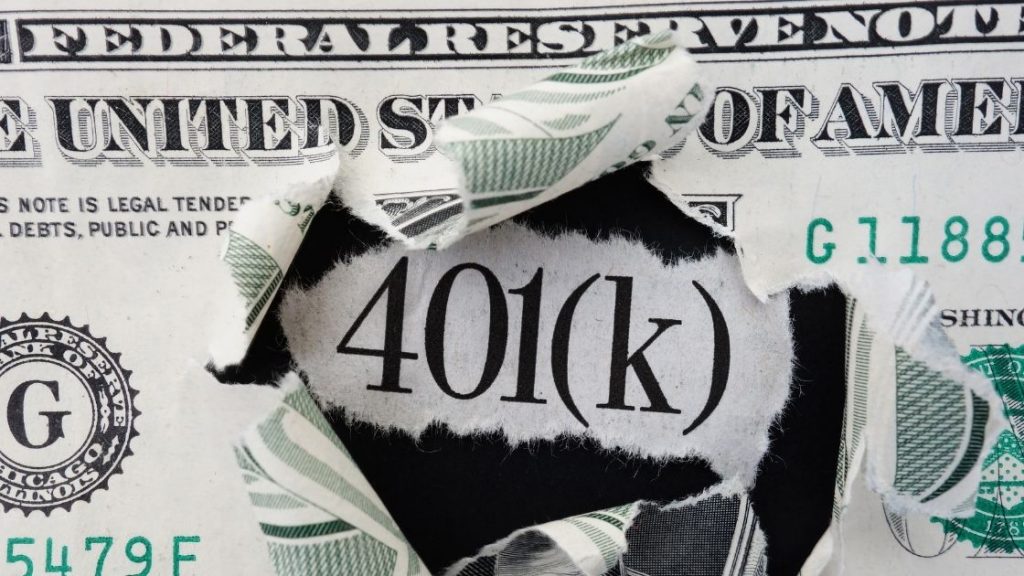Want to get tax-deductible contributions, tax-free growth, and tax-free withdrawals for your retirement? The HSA will deliver on that and more.
This is absolutely one of my favorite tax-advantaged accounts. Let’s get into this!
This post may contain affiliate links. If you click on a link and complete a transaction, I may make a small commission at no extra cost to you.
The information contained in this post is for informational purposes only. It is not a recommendation to buy or invest, and it is not financial, investment, legal, or tax advice. You should seek the advice of a qualified professional before making any investment or other decisions relating to the topics covered by this article.
What is an HSA?
An HSA is a tax-advantaged account that is offered with a high deductible health plan (“HDHP”).
If you select an HSA as your medical insurance option, you pay your monthly premiums for the HDHP (which are often cheaper than “regular” medical insurance premiums), and you also contribute a certain amount each month to your HSA account.
You can then use funds in your HSA to pay for qualified medical expenses.
The downside is that the HDHP has a high deductible (it’s in the name). So you have to deplete that high deductible each year before the full benefits of your insurance coverage kick in.
As of 2021, you can contribute up to $3,600 to your HSA ($7,200 for families). If you are over 55, that number is bumped up by $1,000. Bear in mind that some plans do not have your HSA funds in an account with investment options (my account, for example, was basically just a cash account).
I had to open up an investment account for my HSA that was linked to the cash account. I then moved some of my money to that investment account to start deploying it in better investments, such as stocks, bonds, funds, etc.
I had to keep a certain minimum amount in the cash account (for me it was $1,000), so I could not invest the whole amount in securities.
Related Reading: If you want to learn more about HSAs, check out my article discussing in detail all you wanted to know about HSA.
How Can I Maximize My HSA?
You can maximize your HSA benefits in four ways:
- Take advantage of the triple tax benefits offered by your HSA
- Receive free money from your employer through matching contributions (if offered)
- Use your HSA like a traditional IRA in retirement
- Use your HSA like an emergency fund
- Invest in alternative assets like real estate through a self-directed HSA
Take Advantage of the HSAs Triple Tax Benefit
HSAs offer a triple tax advantage. Here’s what I mean:
Tax Advantage #1
Contributions are Tax Deductible. This means that you can deduct contributions to your HSA from your taxable income for the applicable year up to the IRS limit. They are also tax-deductible at the state level, with some limited exceptions.
Tax Advantage #2
Contributions Grow Tax-Free. This means that investment gains in your HSA can grow year over year without being taxed.
Tax Advantage #3
Funds can be Withdrawn Tax-Free For Qualified Medical Expenses.
This means that you can take out funds from your HSA at any time if they are for qualified medical expenses and you will not pay taxes on those withdrawals. Ever.
In my view, these qualified expenses are defined quite broadly by the IRS (and some may surprise you, such as hearing aids, orthodontics, feminine hygiene products (as of the date of this article), and a host of common over-the-counter medications. See the official list from the IRS.
If you withdraw funds for anything other than qualified medical expenses before age 65, you will have to pay taxes on those withdrawals as well as a 20% penalty.
Use Your HSA Like A Traditional IRA in Retirement
After you hit age 65, the HSA gets really interesting.
You can still withdraw money from your HSA for qualified medical expenses, without penalty or taxes, but you can also withdraw money without the 20% penalty for any reason – you just need to pay taxes on the withdrawal.
This means that after 65, an HSA operates just like a traditional 401k or IRA!
This is a little known feature, but it is tremendously powerful. You can basically save for retirement through this vehicle, but it has the added benefit of being a complete tax shelter for qualified medical expenses.
Take Advantage of Employer Match
In addition to the tremendous tax benefits covered above, many employers offer free money in the form of matching contributions to your HSA.
If you are lucky enough to be offered this, make sure you take advantage. It’s free money after all.
Can You Overfund Your HSA? Not Likely
The short answer is no because, as we just discussed, your HSA can act as a retirement account and you can use that money for any purpose after age 65.
Money in your HSA can be rolled over year after year, so your contributions will not be forfeited. This is distinguishable from FSAs, which also offer certain tax advantages for medical-related expenses. But FSAs have a “use it or lose it” feature (although as of this writing, the passage of the Consolidated Appropriations Act (CAA) has temporarily relaxed some of these FSA restrictions)
I go into FSAs in another article if you are curious about this type of account.
A final data point worth considering is that the average American is expected to spend approximately $295,000 in medical expenses in retirement. You are probably going to be using your HSA funds for their intended purpose a lot in retirement.
In other words, contribute without regret – you will put that money to good use.
Use Your HSA Like an Emergency Fund
You can save your medical expense receipts over the years (I just scan and upload them to google drive) and if you ever need to “cash in” those receipts, you can do so by submitting them for reimbursement through your HSA.
So if you ever need to get reimbursed for those out-of-pocket expenses to cover a large unanticipated expense, you can do so. These receipts collected over the years translate into thousands of dollars (or more) of quick, tax-free cash any time you need it.
Pretty cool way to use your HSA if you ask me. If you want to learn more about this technique, check out my full article on the topic.
Let Your HSA Grow!
I want to emphasize that if you want to use the HSA as a retirement planning vehicle and maximize its benefits, you should not touch the funds until retirement.
Contrast that with the common method of using the HSA is to pay medical expenses as they arise each year.
Most people do this and then let whatever is left-over roll over into the next year. On its face, it makes sense because you get to pay for doctor visits and medication in a tax-advantaged way each year.
I admit, when I first started my HSA, this is what I did. But the HSA can be a tremendous investment growth vehicle (due to Tax Advantage #2 above) and should be allowed to snowball in value for many years.
One word of caution. If you let your money grow in an HSA, you will be paying out-of-pocket expenses for the portion of your medical expenses not covered by your HDHP. But even there, you have an ace in the hole. Remember that emergency fund technique? You can always turn in your receipts and get paid out of your HSA for your out of pocket costs if you need the money.
Advanced Technique – The Self-Directed HSA
Did you know that you can use your HSA to buy a rental property and a host of other alternative assets? I am not talking about a standard investment in a REIT – I am talking about actually buying a rental property through your HSA.
You can combine the unmatched tax advantages of your HSA with the many advantages of real estate investing, including cash flow, appreciation, leverage, and the ability to sleep at night not having to worry about a stock market crash.
A “self-directed” HSA is the key to doing this.
There are a number of companies that can help you set this up and a simple google search for them should give you a list that can help you get started.
There are some IRS rules that come into play when investing this way, so you should consult with tax and legal experts if you are interested in looking into this.
If you want to learn more about using your HSA to invest in rental property, check out my article on the topic.
Conclusion
The HSA is one of my favorite investment vehicles because of its unparalleled tax advantages and wide range of investment options. I also love how much flexibility it offers on how you can spend your HSA money (especially after 65).
Obviously, you should make your own assessment of whether an HSA is right for you. For example, if you have significant medical expenses each year that are fully or mostly covered by standard insurance, moving to an HDHP may not be right for you.
But if you find that it makes sense to open up an HSA, this vehicle can be a really powerful and versatile tool for growing your wealth and securing a stable retirement.
If you have questions about how to maximize other employer benefits, we have a series of articles dedicated to discussing benefits available to employees working in corporate America.

